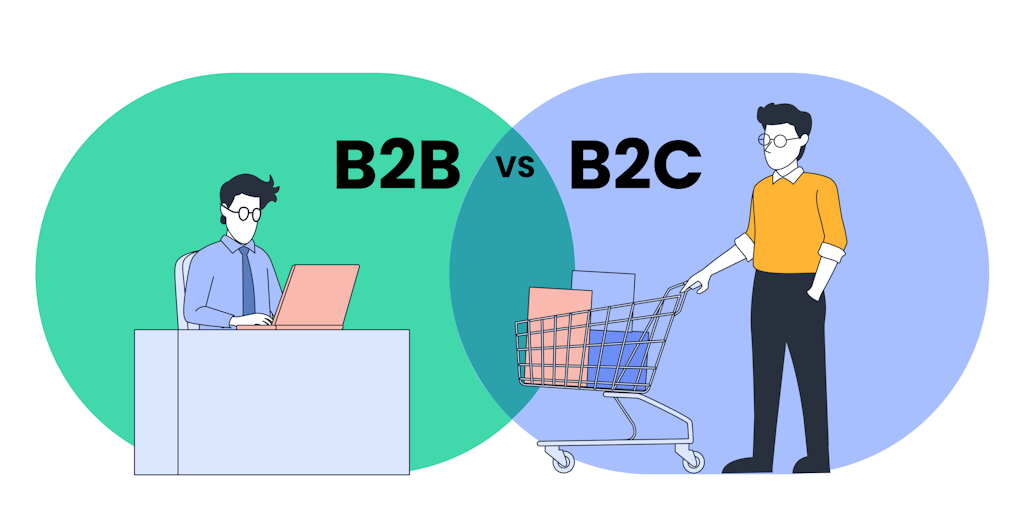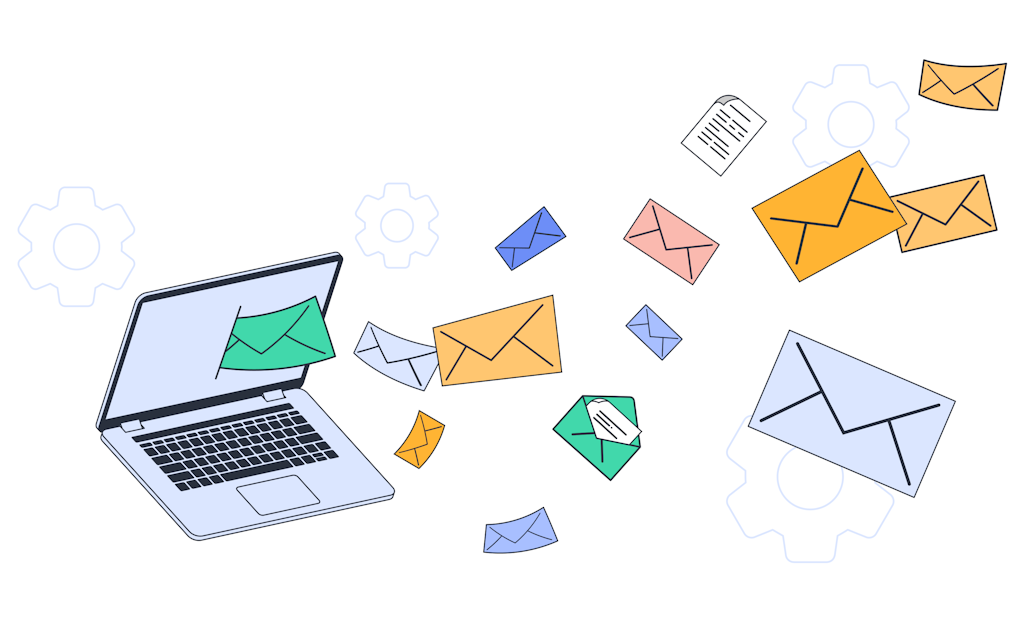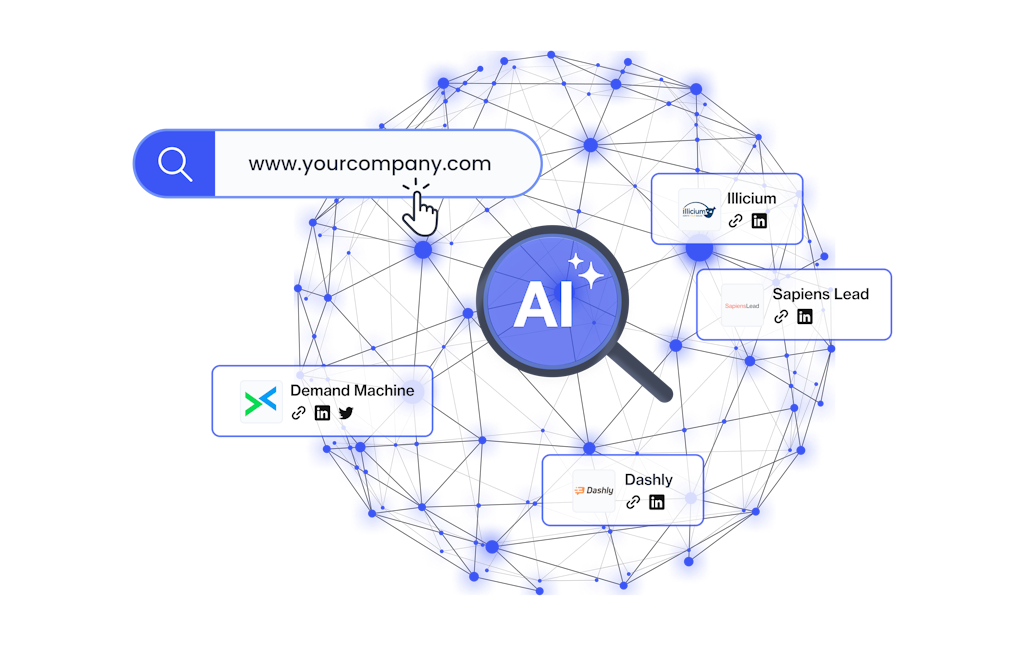A Guide to
B2B Marketing
A Guide to
B2B Marketing

In the world of B2B marketing, measuring key performance indicators (KPIs) is paramount. KPIs are the compass that guides your campaigns and ensures you're on the path to success. Significantly, they enable you to assess return on investment, optimize strategies, prove the value of your efforts and enable you to set measurable, achievable objectives for your marketing campaigns. Common B2B KPIs include lead generation, conversion rates, customer acquisition cost, Marketing Qualified Leads (MQLS), Sales Qualified Leads (SQLS), Customer Lifetime Value (CLV) and website traffic. Utilizing tools such as web analytics, marketing automation software, Email Marketing Software, Customer Relationship Management (CRM) Systems, and Data Analytics and Visualization Tools, you can effectively track and analyze KPIs.
The actual value emerges in how you interpret and use this data to identify trends, compare historical data, segment information, and iterate on your strategies.
Panasonic's marketing automation is an example of successful KPI-driven B2B marketing campaigns. Panasonic, caters to 300,000 global B2B clients spanning diverse sectors. Recognizing the impracticality of a one-size-fits-all approach, they deploy marketing automation to optimize their strategy. With approximately 1,500 campaigns annually, Panasonic tailors their messaging to address unique industry needs, achieving a substantial return on investment. This personalized approach ensures that marketing efforts resonate with individual businesses, generating more efficient and impactful results.
What is B2B Marketing?
What is B2B Marketing?
B2B marketing is the strategic process through which one business promotes and sells its products or services to other businesses. B2B marketing involves tailoring marketing efforts to address the specific needs, challenges, and objectives of businesses and organizations rather than individual consumers. The ultimate goal is to create value-driven solutions that enhance the operational efficiency, productivity, and profitability of the businesses being targeted.
Historically, B2B marketing was reliant on personal relationships and direct negotiations. However, the digital age has significantly transformed the landscape. The rise of the internet, email, and digital communication platforms has revolutionized B2B marketing, making it more accessible and efficient on a global scale.
B2B marketing is fundamental to the growth and sustainability of modern businesses. It enables organizations to reach their target audience, build brand awareness, and drive lead generation and sales. In the competitive world of business, effective B2B marketing strategies are vital for success.

The Difference between B2B & B2C Marketing
The Difference between B2B & B2C Marketing
B2B (business-to-business) and B2C (business-to-consumer) marketing are distinct with unique strategies and approaches. This section highlights key differentiators between these two.
Target Audiences
Target Audiences
B2B marketing targets businesses and organizations, aiming to engage professionals, decision-makers, and procurement departments. In contrast, B2C marketing focuses on individual consumers, considering their personal preferences, desires, and emotions.
Purchase Motivations and Decision-Making Processes
Purchase Motivations and Decision-Making Processes
B2B purchases are typically motivated by rational factors, such as cost, value, and return on investment. B2B buyers seek solutions that enhance operational efficiency, reduce costs, or boost profitability. In B2C, purchases are often influenced by emotions, personal preferences, and impulsive factors.
Marketing Tactics with Audience Differences
Marketing Tactics with Audience Differences
Effective B2B marketing involves longer sales cycles, relationship-building, and a focus on the buyer's journey. B2B marketing strategies seek to establish trust and credibility, nurturing long-term partnerships. B2C marketing, on the other hand, often focuses on promotions, impulse purchases, and creating a solid brand image that resonates with consumers.
Examples
Examples
A B2B software company may utilize personalized email campaigns and content marketing to nurture leads and build relationships. In contrast, a B2C company may leverage social media influencers and e-commerce platforms to engage with consumers and prompt impulse purchases. Understanding these differences is key to success in both strategies.

B2B Marketing Strategies
B2B Marketing Strategies
B2B marketing strategies are pivotal in effectively reaching and engaging businesses and organizations. B2B marketing strategies encompass a range of tactics designed to connect with business audiences. These include content marketing, account-based marketing, email marketing automation, social media advertising, and search engine optimization (SEO).
Each strategy plays a unique role in B2B marketing. Content marketing establishes businesses as industry authorities, attracting potential clients. Account-based marketing personalizes engagement with high-value target accounts. Email marketing automation streamlines communication and lead nurturing. Social media advertising leverages digital platforms for B2B outreach. SEO enhances online visibility and leads.
The selection of the right strategy depends on specific business objectives. For lead generation, content marketing and SEO are effective. Account-based marketing is ideal for personalized targeting. Email marketing automation nurtures leads, social media advertising expands reach, and SEO boosts online visibility.
Examples of Successful B2B Marketing Campaigns
Examples of Successful B2B Marketing Campaigns
Content Marketing
Content Marketing
A cybersecurity company creates a series of in-depth blog posts and webinars about the latest cybersecurity threats and solutions. By providing valuable insights, they position themselves as industry experts, leading to increased website traffic, higher lead generation, and, ultimately, more conversions.
Account-Based Marketing
Account-Based Marketing
A marketing agency targets a select group of high-potential clients in the e-commerce industry. They send personalized direct mail packages and run highly tailored LinkedIn ad campaigns directly to them. This focused approach results in building stronger relationships with these key accounts and securing lucrative contracts.
Email Marketing Automation
Email Marketing Automation
A SaaS company implements an automated email workflow for their trial users. They send a series of onboarding emails, providing tips, guidance, and success stories. This leads to a significant increase in user activation and conversion to paying customers.
Social Media Advertising
Social Media Advertising
An industrial equipment manufacturer runs a LinkedIn advertising campaign showcasing their innovative products to a niche audience of procurement professionals. This targeted approach generates substantial engagement and inquiries from potential clients looking for specialized solutions.
Search Engine Optimization (SEO)
Search Engine Optimization (SEO)
A business consulting firm optimizes its website for relevant keywords and creates a resource hub with informative articles and case studies. This strategy significantly improves their online visibility, leading to higher organic traffic and more inquiries from businesses seeking their expertise.
These examples demonstrate how various B2B marketing strategies can be effectively applied to achieve specific goals and generate successful outcomes.
Content Marketing
Content Marketing
Content marketing is a cornerstone of B2B lead generation. It serves as an invaluable strategy in the B2B landscape, offering a platform for businesses to showcase their expertise, provide value, and establish trust.
Content marketing is the engine driving B2B lead generation. By creating informative, valuable, and relevant content, businesses can attract potential clients, nurture leads, and position themselves as industry leaders. B2B audiences demand substantial, informative content. This includes in-depth whitepapers, insightful blog articles, informative ebooks, and engaging webinars tailored to address the specific challenges and needs of businesses.
A well-structured content marketing plan is vital. This includes defining objectives, identifying target audiences, creating a content calendar, and setting up a distribution strategy to reach the right people at the right time. ROI measurement is crucial in content marketing. Tracking lead generation, conversion rates, and customer acquisition costs can provide insights into the effectiveness of content strategies.
Case Studies Showcasing Success: Salesforce, a leader in customer relationship management, faced challenges in maintaining website traffic and lead conversion. Recognizing the need for a more engaging B2B customer experience, they embraced video marketing. By creating entertaining videos addressing sales and marketing issues, Salesforce saw an 80% increase in web traffic, gained 6,500 email subscriptions, and generated 25 times more traffic than before. This transformation underscores the power of video content for B2B companies and highlights the shift towards emotionally immersive B2B experiences inspired by the B2C model.
Account Based Marketing
Account Based Marketing
Account Based Marketing (ABM) is a strategic approach in B2B marketing that sets it apart from conventional methods. It is a precise, highly targeted strategy that tailors marketing efforts to individual high-value accounts rather than broad audiences. It is particularly effective when dealing with high-potential clients or when building stronger relationships is crucial.
ABM hinges on identifying and prioritizing high-value target accounts, often with the help of data and analytics. These accounts are those most likely to yield substantial revenue and long-term partnerships. ABM thrives on personalization. It involves crafting customized content, messages, and campaigns that resonate with the specific needs and pain points of each target account. Engagement strategies are aimed at building one-to-one relationships through personal interactions.
Success in ABM is measured differently. Metrics focus on the depth and quality of engagement with target accounts, not just volume. Metrics may include conversion rates within target accounts, deal velocity, and lifetime value. These metrics provide insights into the effectiveness of ABM strategies. Account-based marketing is about quality over quantity, making it an ideal choice when nurturing high-value relationships is the goal. Understanding ABM is essential in the B2B marketing arsenal.
See the magic for yourself
See the magic for yourself
Why waste time on prospects that don't convert?
Get a free trial or book a personalized demo.
Start now Why waste time on prospects that don't convert?
Get a free trial or book a personalized demo.
Free Trial
Dedicated CSM
Global Coverage
GDPR compliant
Email Marketing Automation
Email Marketing Automation
Email marketing automation is a game-changer in B2B marketing, offering efficiency, personalization, and measurable results. Email automation is pivotal in B2B marketing due to its ability to streamline communication, nurture leads, and engage potential clients at scale. It ensures timely and relevant messaging, significantly enhancing the efficiency of lead nurturing.
Implementing email automation involves selecting a reliable email marketing platform, creating a content plan, and setting up workflows. These workflows trigger automated responses based on user interactions, such as clicking on a link or downloading a resource. Personalization is at the heart of effective email marketing. Tailoring content to the specific interests and needs of each recipient fosters engagement. Segmentation involves categorizing leads based on behavior, demographics, and engagement level, allowing for even more personalized messaging.
Measuring the success of email automation involves tracking open rates, click-through rates, conversion rates, and other key performance metrics. Data analysis provides insights into what's working and what needs improvement. Email marketing automation is the secret to scalable, personalized communication in B2B marketing. Understanding its role and best practices is pivotal for successful B2B email campaigns.

Social Media Advertising
Social Media Advertising
Social media advertising has rapidly emerged as a powerful tool in the B2B marketing arsenal. Social media advertising offers a unique opportunity for B2B marketers to reach a vast audience and engage with decision-makers in a more relaxed, interactive setting. It provides a platform for promoting content, building brand awareness, and nurturing leads.
The choice of social media platforms is critical. LinkedIn is often the go-to platform for B2B due to its professional focus. However, other platforms, like Facebook and X, can also be effective, depending on your specific target audience and goals. Crafting content that resonates with B2B audiences involves highlighting the value and relevance of your products or services. Effective ad content should address the pain points and needs of businesses, showcasing how your offerings provide solutions.
Measurement is essential for optimizing social media advertising. Metrics like click-through rates, conversion rates, and engagement levels provide insights into the effectiveness of your ad campaigns. Continuous analysis and adjustments are key to success in this dynamic landscape. B2B marketers can seize a variety of opportunities through social media advertising when they grasp its intricacies and use it strategically.
Search Engine Optimization (SEO)
Search Engine Optimization (SEO)
Search Engine Optimization (SEO) is a fundamental element in B2B marketing, driving online visibility and lead generation. SEO is a critical tool for B2B lead generation. When businesses rank high in search engine results, they attract organic, relevant traffic. This is particularly important because B2B buyers often conduct thorough online research before making decisions.
On-page SEO focuses on optimizing individual web pages. It involves elements like optimizing title tags, meta descriptions, and content quality. Off-page SEO concentrates on external factors, such as backlinks and social signals. Both are integral for strong search engine rankings.
Effective keyword research involves identifying terms and phrases relevant to your B2B audience. Targeting the right keywords guarantees that your content aligns with what potential clients are searching for. Metrics like organic traffic, click-through rates, and conversion rates offer insights into the effectiveness of SEO efforts. Analyzing these metrics helps refine strategies and maintain high search engine rankings. SEO is the key to boosting online visibility and attracting valuable leads in the world of B2B marketing.
See the magic for yourself
See the magic for yourself
Why waste time on prospects that don't convert?
Get a free trial or book a personalized demo.
Start now Why waste time on prospects that don't convert?
Get a free trial or book a personalized demo.
Free Trial
Dedicated CSM
Global Coverage
GDPR compliant
Benefits of B2B Marketing
Benefits of B2B Marketing
Effective B2B marketing strategies yield benefits that not only impact income but also shape the reputation and relationships of businesses. The ability to demonstrate direct, measurable results is a hallmark of effective B2B marketing. Here are some tangible advantages of B2B marketing.
ROI and Revenue Growth
ROI and Revenue Growth
The focus of B2B marketing is on driving revenue growth. Effective lead generation, nurturing, and conversion processes result in a clear and measurable increase in sales. The connection between marketing efforts and revenue growth is a compelling argument for its importance.
Enhanced Brand Reputation and Credibility
Enhanced Brand Reputation and Credibility
A well-executed B2B marketing strategy not only attracts leads but also enhances brand reputation and credibility. By consistently delivering value and insights, businesses build trust and establish themselves as industry leaders.
Long-Term Relationship with B2B Clients
Long-Term Relationship with B2B Clients
B2B marketing is not just about short-term transactions; it's about nurturing long-term relationships. It's about understanding client needs and providing solutions. Over time, this fosters loyalty and ensures a continuous stream of business.
B2B marketing isn't solely about numbers, it's about building meaningful connections and delivering results. Moreover, leveraging B2B data can further enhance the precision and effectiveness of B2B marketing efforts. Understanding these benefits is crucial for B2B marketers looking to make a lasting impact.

B2B Marketing Best Practices
B2B Marketing Best Practices
In the ever-evolving landscape of B2B marketing, adhering to best practices is a necessity. B2B marketing encompasses a range of strategies, from content marketing to account-based marketing, email automation, social media advertising, and SEO. Understanding when and how to apply each strategy is fundamental for a holistic marketing approach.
Data is the lifeblood of B2B marketing. It guides every aspect of your strategy. By analyzing KPIs, tracking lead generation, and measuring ROI, you ensure that every decision is grounded in actionable insights. The world of marketing is ever-changing. Staying updated on emerging trends and technologies is essential. Whether it's AI-powered marketing automation or the impact of voice search, adaptability is a must.
The journey doesn't end when a campaign launches. Success lies in the ability to optimize and measure B2B marketing efforts continuously. A/B testing, analyzing performance, and refining strategies are the keys to lasting success. By embracing these best practices, B2B marketers can navigate the dynamic realm of B2B marketing with confidence, ensuring their efforts remain effective, efficient, and impactful. In this fast-paced environment, strategic adherence to these practices is the foundation for building meaningful relationships and driving business growth.
As digital marketing evolves, tapping into intent signals is critical for staying ahead of the competition.
As digital marketing evolves, tapping into intent signals is critical for staying ahead of the competition.
Ocean.io is a cutting-edge platform specializing in intent data and B2B marketing solutions. We offer tools and data-driven capabilities that can supercharge your marketing efforts.
Whether you need to identify high-intent prospects, personalize content, or align sales and marketing strategies, contact us today for us to help you do it smarter and more efficiently.
Start now Ocean.io is a cutting-edge platform specializing in intent data and B2B marketing solutions. We offer tools and data-driven capabilities that can supercharge your marketing efforts.
Whether you need to identify high-intent prospects, personalize content, or align sales and marketing strategies, contact us today for us to help you do it smarter and more efficiently.
